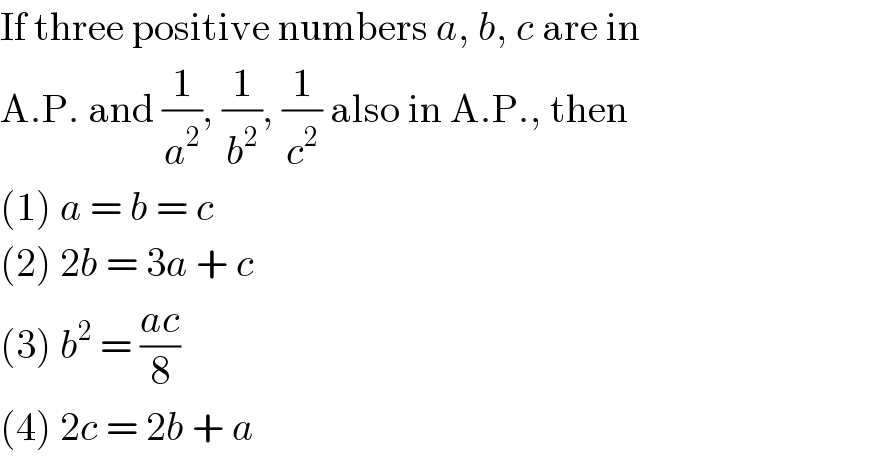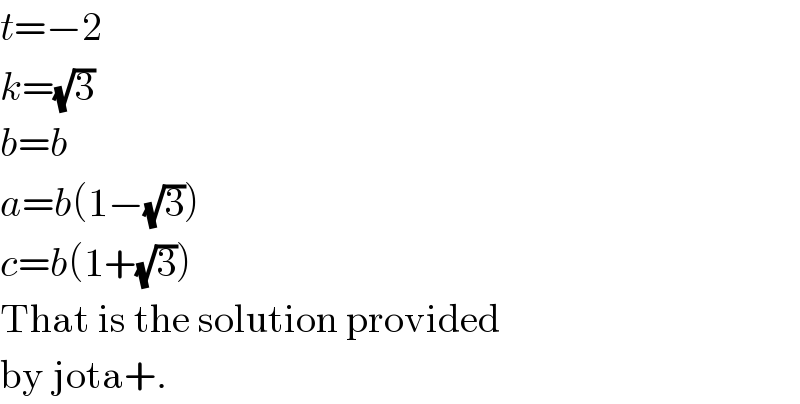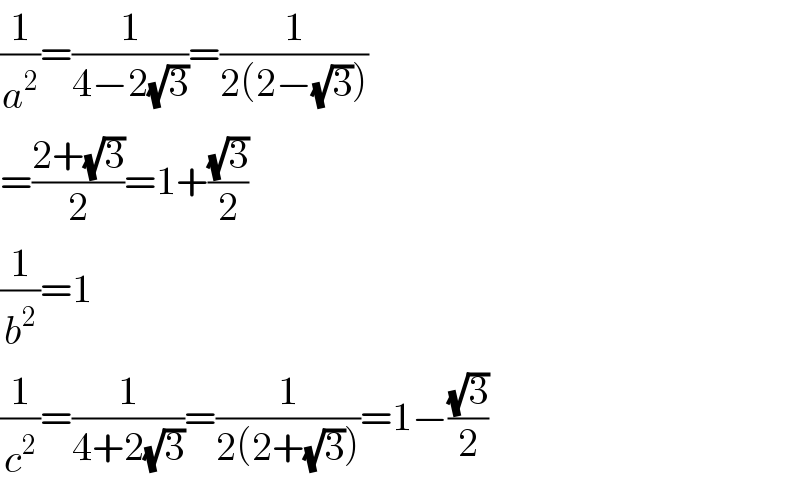
Question and Answers Forum
Question Number 24858 by Tinkutara last updated on 27/Nov/17

Answered by ajfour last updated on 28/Nov/17

Commented by prakash jain last updated on 30/Nov/17

Commented by Tinkutara last updated on 28/Nov/17

Commented by prakash jain last updated on 30/Nov/17

Answered by jota+ last updated on 29/Nov/17

Commented by prakash jain last updated on 30/Nov/17

Commented by prakash jain last updated on 30/Nov/17

Commented by Tinkutara last updated on 30/Nov/17

